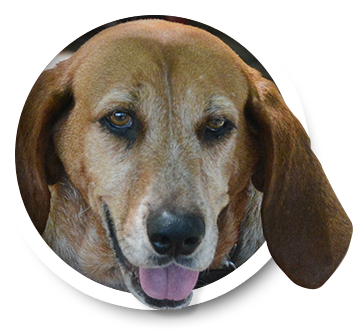

Whoa! Stop and put those brakes on. Cayenne here and you probably figured it out. We are hitting the brakes and hard. Safety should always be an element of your vehicle care. So even if you don't care about how your vehicle looks, you should practice preventive maintenance to protect yourself — and other Los Altos drivers — on the road. And good safety starts with good brakes.
Brakes need a regular inspection. There are parts that wear out or wear down, and it's best to replace them before you have serious problems.
Of course, if you are having trouble with your brakes, NOW is the time to fix them. If your brake warning light is on, that's a good sign that you need your brakes checked. You can also tell something is wrong with your brakes by the feel of the pedal or unusual sounds while braking. If the brake pedal is low, feels spongy when you press it or is hard to push, that indicates a problem with your brakes. If you hear squealing, grinding or clunking noises when you brake, that can also indicate serious problems. If vibrations accompany braking, then it is to get your brakes checked.
Brakes come in two basic types. With disc brakes, a rotor is attached to the axle of the vehicle. Padded calipers straddle the rotor and close when the brakes are applied. The resulting friction causes the rotor — and the axle — to stop turning. With drum brakes, brake pads (also called shoes) press against the inside of a drum to create friction and stop the drum, and hence the vehicle's wheels, from turning.
When Allied Auto Works services your brake system, your friendly and knowledgeable service advisor checks all of the brake pads for wear. If they are too thin, they need to be replaced. This is an inexpensive repair at Allied Auto Works compared to what procrastination will cost you. If pads wear away completely, then the rotors and drums can be damaged. They will have to be either resurfaced or replaced, and that can be expensive. But if your vehicle brake pads are worn out, then your brakes are compromised and your stopping power is greatly reduced. You could easily wind up in an accident.
Brake pads come in several different grades, such as regular, metallic and ceramic. The higher grades are more expensive, but they also work better. CA drivers who want better and smoother braking should consider upgrading. However, Los Altos drivers should NEVER use a brake pad that is lower than their vehicle manufacturer's recommendation.
After your brake pads are checked at Allied Auto Works, it's also wise to have your brake fluid checked. This is a critical element in your brake system. When you press your brake pedal, you are compressing the brake fluid, creating pressure that activates the brake pads. If your fluid pressure is low, it will decrease your braking power. The pads just won't be able to press hard enough against the rotor or drum to stop your vehicle. Just as with worn pads, insufficient brake fluid can lead to an accident in Los Altos.
Water can build up in your brake fluid, which can cause corrosion in your braking system. Eventually, this can cause your brake fluid to leak. So Los Altos drivers should also change their brake fluid periodically. Your vehicle owner's manual will have guidelines on how often it should be replaced, or you can ask a service advisor at Allied Auto Works.
Remember, Los Altos folks, safety first. It's auto advice for all Los Altos drivers on the road. You're not just protecting others; you're protecting yourself.
Safety never takes a day off,
Cayenne

Allied Auto Works
2073 Grant Road
Los Altos, CA 94024
650.968.7227
https://www.alliedautoworks.com/